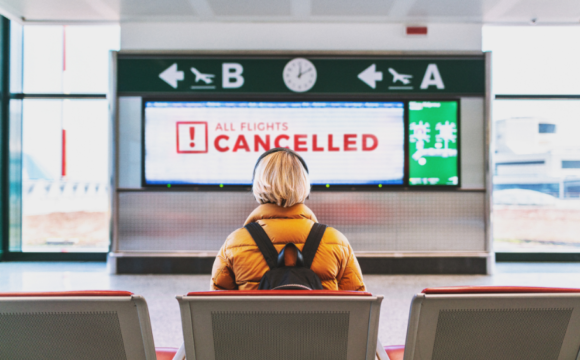A survey by the Royal Horticultural Society (RHS), to coincide with the RHS Chatsworth Flower Show, reveals that of more than half (57 per cent) of respondents planning to travel abroad in the next 12 months, nearly one in 10 (nine per cent) would consider bringing a plant back with them, equivalent to 2.5 million people.
While importing plants in personal baggage is already subject to some restrictions that vary depending on country of travel and plant type, the RHS, along with Defra, is calling on holidaymakers not to bring plants back from abroad and instead purchase them in the UK in light of the growing plant health threat.
Fuchsia gall mite, which causes plant disfigurement and is now rife in the South East, has been attributed to a fuchsia enthusiast illegally importing cuttings of the plant from South America. There are currently more than 1,000 pests and diseases on the plant health risk register while Xylella – a bacterium which is known to affect more than 350 species of plant, including garden favourites such as lavender, hebe and rosemary – has been found in Italy, France and Spain. Nearly a third (31 per cent) of survey respondents is planning to visit one of these three countries in the next 12 months.
When it comes to the existing restrictions in place at borders, respondents said UK customs (68 per cent) should be responsible for making people in the UK travelling abroad aware of these restrictions, followed by the UK government and governmental departments (59 per cent), travel gateways such as airports, ports, coach and train terminals (51 per cent) and travel operators, such as airlines, ferry and train companies etc (50 per cent).
The RHS and BBC Radio 4’s Gardeners’ Question Time will highlight the importance of plant health at this year’s RHS Chatsworth Flower Show (6-10 June) with an interactive feature to equip the UK’s gardeners with the knowledge and expertise needed to plan and maintain a healthy garden.
As announced in the Tree Health Resilience Strategy published by Defra in May, Defra will launch the ‘Don’t Risk It’ campaign this summer to raise awareness of the risks of bringing back cut flowers, fruit, vegetables and plant material from holiday destinations.
Sue Biggs, Director General of the Royal Horticultural Society, said: “For many people, wandering the olive groves of Italy and lavender fields of France are as much a part of the holiday experience as the cities and beaches. But we’re asking people to leave these beautiful plants where they are for future visitors to enjoy and not to bring them back home with them. This is vital if we are going to win the fight to protect our gardens against the growing threat of pests and diseases.”
Defra Chief Plant Health Officer, Nicola Spence said: “We’ve invested more than £4.5million to strengthen our border biosecurity, recruiting new plant inspectors and enhancing training. Our inspectors now make more interceptions of harmful organisms than any other EU member state. But we can’t eliminate all risks and we all have a part to play in protecting our plants and trees. Through our ‘Don’t Risk It’ campaign we’ll be asking everyone to enjoy the exotic plants and flowers they see on their holidays – but only bring them back to the UK in their memories and pictures.”
















